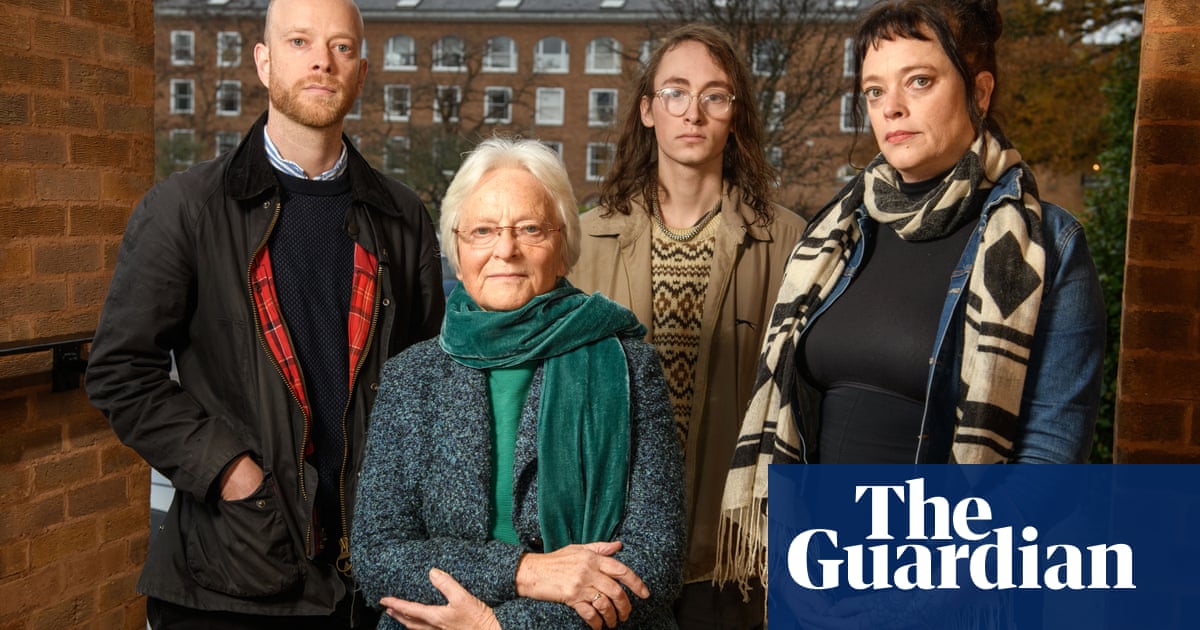
One of the most poignant moments for Alison Orchard came when she was sorting out her son Thomas’s room after his fatal collapse while in police custody.
Over the years, Thomas Orchard had experienced mental health problems and had not been allowed to fulfil one of his ambitions: to drive.
“I was clearing out his room and opening his post,” said Alison. “And his provisional driving licence had arrived. The medics had looked at his case and now considered him well enough to drive. It was heartbreaking, so sad to see that.”
Thomas, a church caretaker, died in October 2012 aged 32 after police placed a heavy fabric belt over his face following his arrest during a public order incident in Exeter. The officers had used the “emergency response belt” (ERB), which was designed as a limb restraint, as a “spit and bite hood” on him. He suffered a cardiac arrest and died a week later.
Since then Orchard’s family have fought for justice for Thomas, described by those closest to him as a gentle, intelligent man who had struggled with paranoid schizophrenia, but at the time of his death – as shown by the arrival of that provisional driving licence – was doing well.
“He was a good person,” said Alison. “He lived a very simple life. He was very religious, had always had an interest in spirituality and the Bible. I think he was the most honest person I know.”
His brother Jack Orchard said: “What is so sad is how well he was doing at the time of his death.” Jack suggested he may have stopped taking his medication because he felt he was so healthy. “When you lose someone relatively young you grieve for them and for their future, too, the things he and we will never experience because he’s gone. It makes his death all the more tragic.
“He was special to us in lots of ways. I have a five-year-old son he has never met. My son’s middle name is Thomas. We try to make sure he has an awareness of who his uncle was, even though he has never met him.”
The family has sat through two criminal trials of a police sergeant and two detention officers. They were cleared of manslaughter in 2017.
Jack said the inquest at County Hall in Exeter, which began six weeks ago, had been gruelling, with the awful images of Thomas’s suffering from the police station’s CCTV cameras replayed. “Hearing again from witnesses, reliving Thomas’s death time and time again is traumatic. It doesn’t get any easier though it’s 11 years on and though we’ve seen his death in super-slow motion hundreds of times before.”
The family believes health professionals who were looking after Thomas in the lead-up to his arrest did a good job. Jack said: “His care was excellent until the moment he came into contact with the police, when his care was appalling, completely lacking in any sort of compassion. Every single interaction we’ve had with the police since Thomas’s death has completely lacked in any compassion.”
In 2018 the office of the Devon and Cornwall chief constable admitted breaking health and safety law over Thomas’s death in relation to issues over the ERB. But the force did not accept that the belt had directly caused his death.
Alison said: “I feel that the biggest change that needs to happen is a cultural, systemic one. That is going to take quite a bit of budging. They have got to stop being defensive and obstructive. My fear is that one of the things they have learnt is that they can get away with it. The admissions the force made and pleaded guilty to were the minimum they could get away with.”
Jack said: “We’re still angry. We want to do everything we can for Tom. We will not stop until we’ve gone down every single avenue we can to get that apology, to have that recognition that the way he was treated was appalling.
“If it felt like Thomas’s death had been appropriately responded to or that Devon and Cornwall police and the officers had taken some accountability for what happened, I think that would have lessened our anger and resolve to fight for Thomas. But until we get that it still feels we have that burning desire. We won’t stop until we’ve exhausted everything we can for Tom.”
The latest figures from the Independent Office for Police Conduct revealed the number of deaths in or following police custody in England and Wales had doubled in 12 months to the joint-highest level in the past 16 years.
Asked if they felt they were closer to the truth of what happened, Thomas’s father, Ken Orchard, said: “It doesn’t feel as if it’s us who needs to get closer to the truth. I think we know the truth. It’s simple and straightforward.”
It was Devon and Cornwall police who needed to admit the truth, he said. “The police have offered their condolences on a number of occasions but they never ever offer an apology. We absolutely still want that. Until they admit mistakes, until they admit some culpability, nothing will change.”
Ken said: “Watching the videos of Tom’s death in freeze frame and slow motion, watching your son dying over and over again is a tough process. There are still far too many deaths in police custody. All this is not only for Tom but for other families yet to come.”












